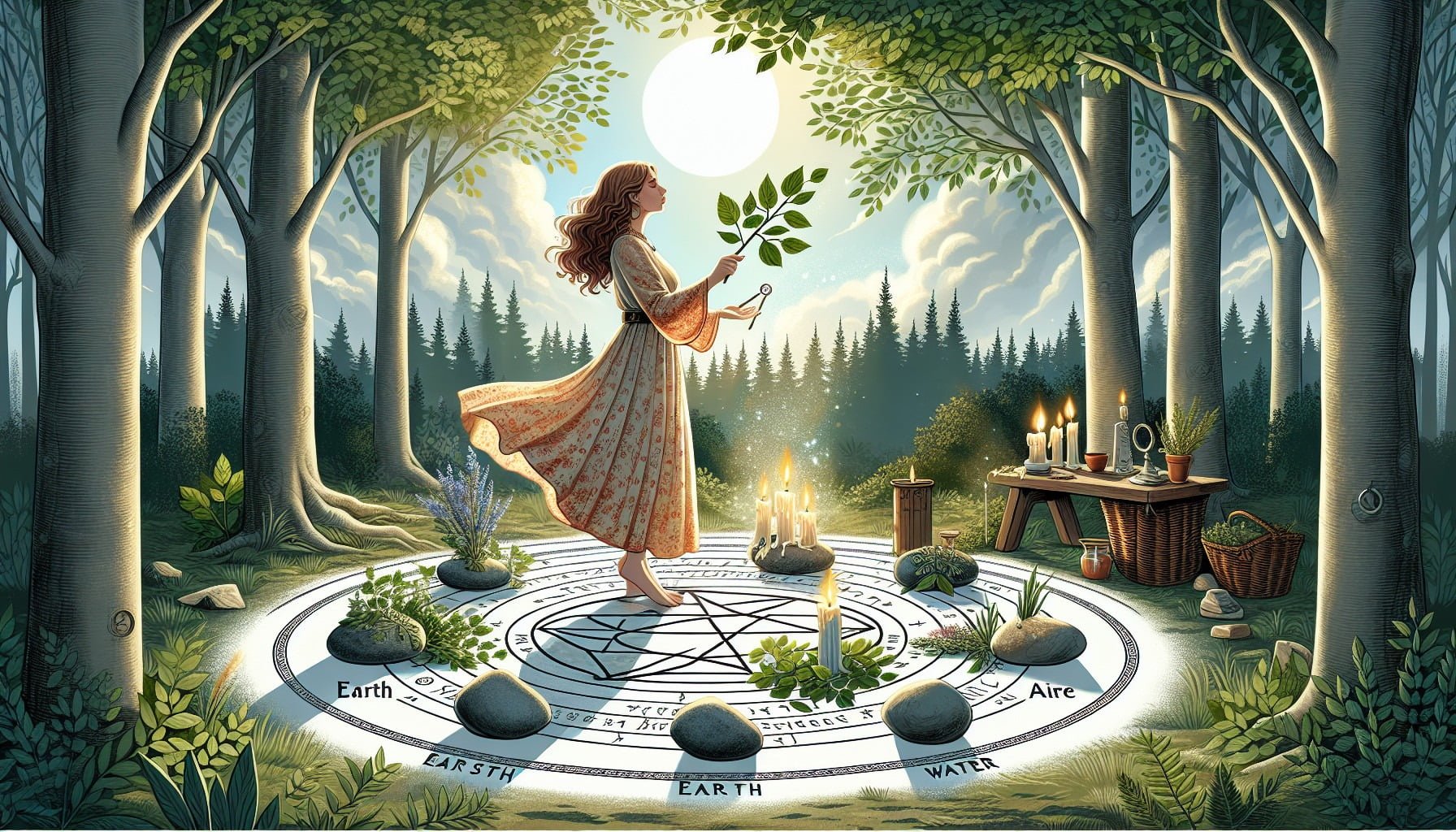Gods and Goddesses in Paganism: A Comprehensive Guide
Paganism encompasses a diverse range of belief systems that venerate a varied pantheon of deities. These divine beings, sourced from different ancient traditions, hold significant importance in the spiritual customs of present-day Pagans. This piece delves into the intriguing realm of Pagan gods and goddesses, providing insights into their origins, characteristics, and contemporary modes of worship. From the ancient Norse deities of the frosty North to the radiant gods of the Egyptian pantheon, each civilization contributes its distinct divine entities to the Pagan milieu. These sacred figures are not mere vestiges of antiquated faiths but are dynamic and vital components of modern Pagan observance, profoundly shaping ceremonies, celebrations, and everyday spiritual life. By delving into these deities, we unveil the intricate tapestry of belief that lies at the core of Pagan spirituality, forging connections between adherents and the natural cycles, the cosmos, and the heritage of our forebears.
Understanding Pagan Deities
Pagan faiths commonly embrace polytheism, acknowledging a multitude of gods and goddesses, each representing distinct facets of existence and the world around us. These divine beings are esteemed for their individual powers, characteristics, and the legends that surround their being. Ranging from the nurturing earth mother goddesses to the formidable thunder gods, Pagan deities encompass a wide array of divine archetypes. This diverse spectrum enables adherents to establish a connection with the divine that aligns with their personal convictions, life experiences, and the natural surroundings. Whether it be the sagacity of the crone goddesses, the fecundity of the harvest gods, or the transformative influence of the death and rebirth deities, each entity offers a unique viewpoint on life’s cycles and the cosmos. Through ceremonies, offerings, and contemplation, Pagans interact with these deities, seeking their counsel, safeguarding, and benevolence in all aspects of life, be it individual development and healing or communal prosperity and environmental guardianship.
Major Pantheons in Paganism
Celtic Deities
The ancient Celts worshipped a variety of gods and goddesses, many of whom are still honored by modern Pagans. Key figures include:
- Brigid: Goddess of healing, poetry, and smithcraft.
- Cernunnos: God of animals, fertility, and the underworld.
- The Morrigan: Goddess of war, fate, and sovereignty.
Norse Deities
Norse mythology offers a rich tapestry of gods and goddesses, with the Aesir and Vanir being the two main families of deities:
- Odin: The Allfather, god of wisdom, war, and death.
- Freyja: Goddess of love, fertility, and battle.
- Thor: God of thunder, protector of humanity.
Greek and Roman Deities
The pantheons of ancient Greece and Rome are perhaps the most well-known, featuring deities who influence various aspects of human life and the natural world:
- Athena: Greek goddess of wisdom and strategic warfare.
- Apollo: God of the sun, music, and prophecy.
- Venus: Roman goddess of love and beauty.
Egyptian Deities
The gods and goddesses of ancient Egypt are deeply connected to the afterlife, magic, and the natural elements:
- Isis: Goddess of magic, motherhood, and fertility.
- Osiris: God of the afterlife and resurrection.
- Anubis: God of mummification and the afterlife.
Worship and Rituals
Contemporary Pagans interact with their chosen deities through a variety of rituals and customs that mirror the diversity of the pantheons they revere. These practices encompass prayer, contemplation, offerings, and the observance of seasonal festivities dedicated to specific gods and goddesses. Many Pagans establish shrines devoted to their favored deities, where they present gifts and seek counsel. These sacred spaces often evolve into personal sanctuaries adorned with symbols, depictions, and objects of spiritual importance. Alongside these traditions, some Pagans engage in intricate ceremonies, enact sacred performances, or embark on pilgrimages to sites linked with their divine beings. Crafting talismans, composing devotional verses, and creating music are additional avenues through which Pagans express their reverence and establish a connection with the divine. This involvement serves not only as a form of adoration but also as a method of integrating the attributes and teachings of the gods and goddesses into everyday life, nurturing a profound and enduring bond with the divine.
FAQs Pagan Deities
Do all Pagans worship the same gods and goddesses?
No, Paganism is incredibly diverse, and practitioners may choose to honor deities from one or multiple pantheons, or even focus on a single deity.
Can someone be a Pagan without believing in gods?
Yes, some Pagans view the gods as symbolic archetypes rather than literal beings, focusing instead on the spiritual and moral lessons the myths convey.
How do Pagans choose which deities to worship?
Many Pagans feel a personal connection to specific gods or goddesses, often through meditation, study, or personal experiences that draw them to a particular deity.
The Enduring Connection to Ancient Wisdom
The gods and goddesses in Paganism offer a rich and diverse tapestry of divine figures, each contributing to the vibrant mosaic of modern Pagan practice. Whether through personal devotion, communal rituals, or the celebration of the natural cycles, Pagans continue to honor these ancient deities, finding relevance and inspiration in their myths and attributes in today’s world. This enduring connection speaks to the timeless nature of these archetypes, transcending centuries and cultures to resonate with the human spirit now as they did in the past. Pagans draw from this wellspring of ancient wisdom to navigate the complexities of contemporary life, seeking the guidance of deities who embody strength, compassion, transformation, and balance. By integrating these principles into their spiritual path, Pagans forge a living tradition that honors the old while embracing the new, creating a dynamic and evolving faith that supports personal growth and community harmony. The stories of these gods and goddesses, rich with symbolism and moral lessons, continue to be a source of personal empowerment and a means for understanding the greater mysteries of existence.
Lilly Dupres
Owner & AuthorLilly Dupres, a lifelong practitioner of paganism, established Define Pagan to offer a clear definition of paganism and challenge misconceptions surrounding modern pagan lifestyles.



















